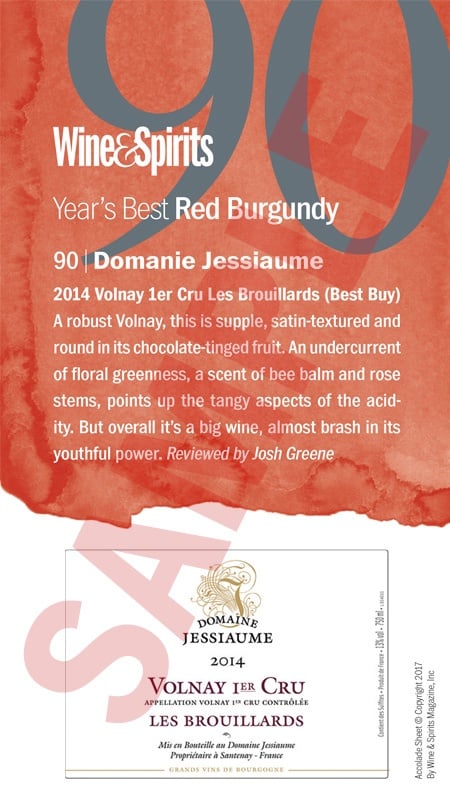

Evan Turner, who spent his teenage years in Thessaloniki, has carried his love of Greek culture, food and wine into his career as an adult. After helping open two Greek restaurants in Texas, he moved to Boston to work at Krasí, which opened five weeks before shutdown on March 15th, 2020.
We’ve been incredibly fortunate. I got back in April of 2021 after being on furlough for 13 months. During that time, we maintained really good training doing Zoom classes, and I would pick the wine; someone up there in Boston, while I was in Texas, would find the wines, put them in little Mason jars, little tiny ones, and just distribute them out so they could still keep training and keep tasting. When it comes to Greek wine, education is key, and you have to make sure that every person that’s on the floor really knows what they’re doing and is able to express to a guest: This is what this is like, this is what this is like, maybe it might remind you of this, this or this.
So we kept that up rather diligently through 2020. And then I got up here again in 2021 in April, and it’s been fantastic. And we had a great summer: The city of Boston allowed for a lot of outside seating. And the reception of the restaurant has been grand. So even as we’ve had to reduce seating outside due to [winter] weather, we continue to be busy. And, and for that, I’m just so grateful.
I try to keep [to what’s] produced in Greece. Ninety percent is indigenous varietals, 10% is international. I don’t have anything international on by the glass on a regular basis. We have anywhere from 30 to 45 different BTGs at any given time. You have to have a lot of wine by the glass when you’re serving wines from a place that people just don’t know. It really helps the guests because, they’ll say, “While I’m waiting for my other three guests, I’ll have a glass of this.” And then the other three get there and they’re only two-thirds through that glass and they say, “Oh, you should take a taste of this.” And then [the guest] says, “This is delicious, fine, we’ll get that.” We end up selling all lot of our wine-by-the-glass by the bottle because we get a lot of “can I taste it first?” because people are still so hesitant about Greek wine.
Glinavos Paleokerisio—an obscure slightly sparkling orange wine from Zitsa in far western Greece—is your best-selling wine?!
It’s far and away our best-selling wine. We don’t treat it like dessert wine, and I will give complete nutter credit to Dimitri, the owner; he loves that wine. And so, while I was on furlough, and he was basically doing my job, he was telling people [about it] all the time, and it just caught fire. All our regulars love it. Our staff who have all been around from the very beginning in one level or another all try to sell it all the time. I try to not suggest it just to be contrarian. And it doesn’t matter. People come in, “Oh, I’ve had that sparkling orange wine. I really want that.” It comes in that adorable bottle, and everybody just goes nuts for it. And so, it’s just become a thing.
My big thing has always been, if you have a guest come in, and you treat them like royalty, and you serve of them brilliantly made food that’s delicious, and you’re kind, and you’re generous, and then on top of all of that, you teach them something, they’ll love you forever until you poison them. And so, for me, I like changing it up all the time, like, ok, assyrtiko from Santorini—yes, It’s amazing. So why don’t you try something that’s similar stylistically and a third of the price—a xynisteri from Cyprus, right down the road? The xynisteri has been wildly successful. It’s delicious, and it works for everyone—the people who come in and say, “I love sauvignon blanc” or who ask about Santorini.
Is there interest in orange wines in particular?
We get people who come in all the time and say, “Oh, I’ve heard about orange wine. Do they make orange wine in Greece?” And off to the races we go. I offer five or six by the glass, a range of styles, from a lighter one that the producer refers to as ‘amber,’ to stuff that looks like maple syrup, it’s so dark. So yes, we get people who ask for it and want to know more about it, and it’s great to tell that story and explain to people how wine is made—at least as quickly as one can at a table on a busy Saturday.
We have a really adventurous, curious guest base. They want to do different things. They want to taste different stuff. They want to have wines that break the mold for them. I think in a lot of ways, that’s why they’re coming in the door—because they know, “I’m having Greek wine tonight. And I don’t really know Greek wine except for the nice crisp whites that I had when I was there seven years ago.” So, when they come in, they’re already palate-open, so to speak. They’re already in an idea that [they’re] going to be doing something different, so let’s really be different. And as somebody who has sold Greek wine for a long time now to watch people get more and more and more adventurous, to the point where they’re almost like: “I want something freaky; bring it on,” that’s been an absolute delight.
Do you find that people have more familiarity with different regions and different grapes when they come in now?
Okay. So this is a tough question to answer. It’s kind of like, well, if, if you used to run the hundred meters in 30 seconds and you get it down to 27 seconds, you’ve made great improvement—but you were so slow in the beginning. How fast are you really? You know? But yes, there’s a lot more. I get a lot of, “I was in Greece last summer, and I went here, here and here, and just loved the wine. Do you have anything from here, here, here?” And look, that’s better than five years ago when it was, “I hear Greek wine sucks, and they also make this wine that takes like Pine-Sol.“
Have you implemented any special wine promotions since reopening?
We do three things. One is we have an insert slid right in the front cover of the wine list that’s called “what we drink when you’re not here.” It’s all about wines that we think are really funky and really outside the box that, when we’re closing up at night and having a good time cleaning up, we’re cracking open these bottles that we think are cool and interesting.
We also sell everything retail, and it’s comparable to retail pricing anywhere in the United States. So, if you want to buy a bottle of the Glinavos to walk out the door, it’s 17 bucks, which is right around what it costs anywhere.
And then finally the last few months now I’ve been doing symposium Wednesdays where I get behind the bar. I pick four, five wines and say, “let’s explore.” Or another time it happened to be the birthday of one of our main managers, so we let her pick four wines that she loves. It’s a two ounce pour of each, for a set price, only offered at the bar, and guests get a little card with descriptions and so forth. Then I walk them through each one. And of course they can buy a glass or a bottle if they want.
is W&S’s editor at large and covers the wines of the Mediterranean and Central and Eastern Europe for the magazine.
This is a W&S web exclusive. Get access to all of our feature stories by signing up today.




















